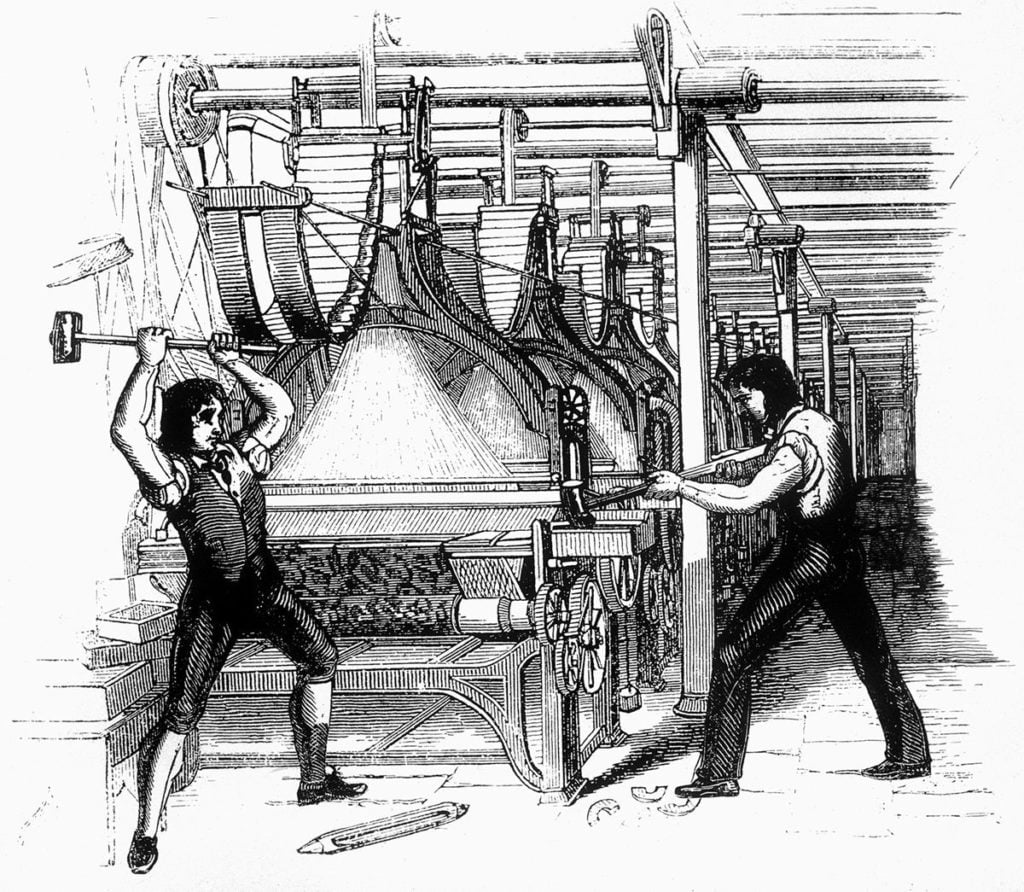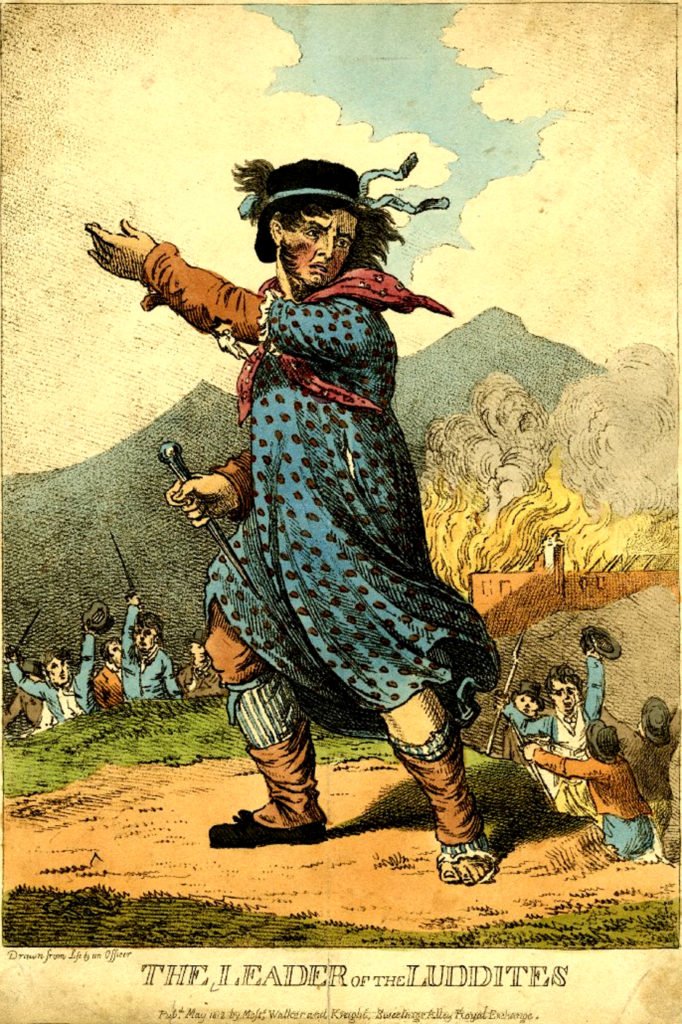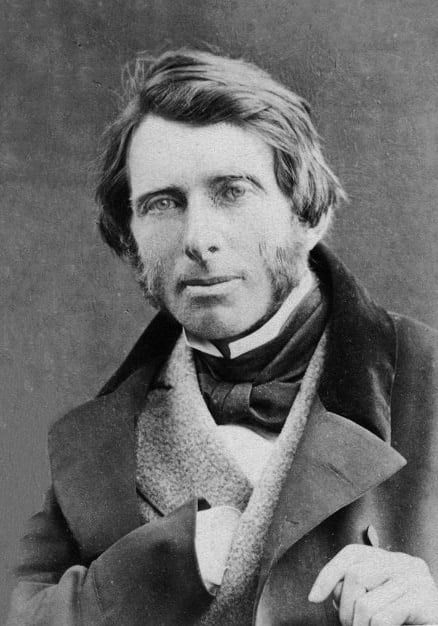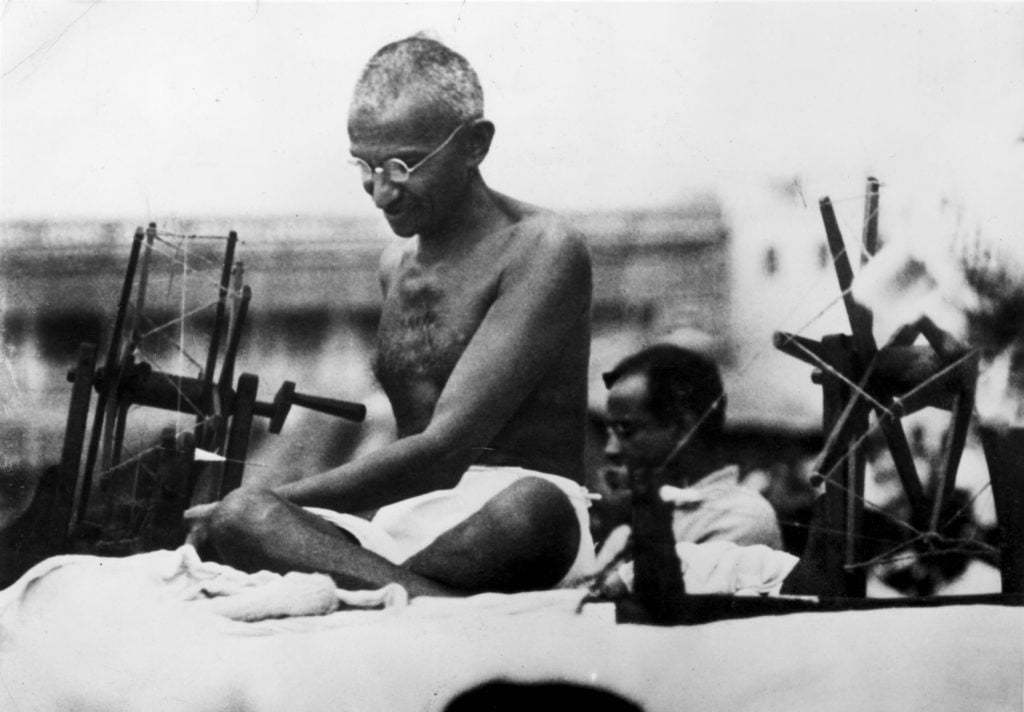Do you know what a Luddite is? Usually the term is applied to someone who dislikes technology and industrialization.
Gandhi is a great example of a Luddite.

But the term originated in 19th century Britain when a secret oath-taking radical group of textile workers led by Ned Ludd decided to break mechanized looms that were putting them out of business. They were against the spinning mule and the power loom, all of which were upending their life and livelihood.
The British government was in no mood to let these textile artisans have their way. The age of industrialization was upon them and so troops were brought in to quell the Luddite riots of 1812.

British mill owners had their eyes set on the prize: the Indian textile market.
The master stroke was to remove the art from the artisans, even here in India. India was made to export raw cotton to Britain. The mills of Manchester spun this into fabric and sold it back to the very place that it came from. Like the Luddites, Indian weavers and spinners could not compete with the mills.
The losses caused by industrialization.

Enter an Englishman. A cultural critic by name John Ruskin. He was an early and articulate critic of industrialization. In his book, The Stones of Venice, Ruskin says that craftspeople should be treated as creative artists. The uniformity that industrial power looms accord are not virtues but defects, he says.
Those of us who love handlooms would heartily agree.
Ruskin had three rules.
- Invention was important in every creation.
- Never demand an exact finish for its own sake, but only for some practical or noble end.
- Never encourage imitation or copying of any kind, except for the sake of preserving records of great works.
To Mahatma Gandhi, his words were like music.
When Gandhi translated Ruskin’s books into Gujarati, he converted those ideas into the Indian context. As he said,
‘Unto This Last’, I translated it later into Gujarati entitling it ‘Sarvodaya’ (the welfare of all). I believe that I discovered some of my deepest convictions reflected in this great book of Ruskin and that is why it so captured me and made me transform my life. — Mahatma Gandhi.





